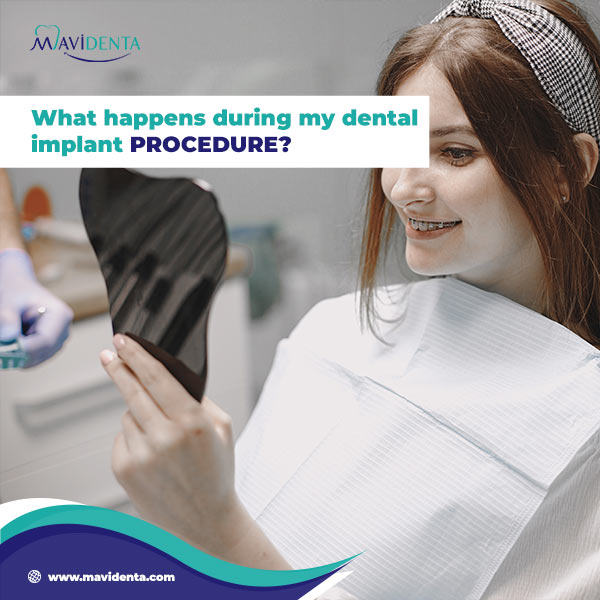Is dental implants safe? Dental implants replace missing teeth or dental treatments that have reached a point where they are severely worn, broken, or corroded.
Patients often suffer from dental problems to the point that the basic structure cannot be repaired, restored, or filled, not even by intervening with a Hollywood smile. So, we will discuss whether dental implants are safe.
Is dental implants safe or are there risks?
In addition, are dental implants safe? There are some potential risks of dental implant surgery, the most important of which are:
- Gingivitis and osteoarthritis: Inflammation can occur at the implant site, possibly leading to implant loss.
- Pain: The patient may feel pain during or after the operation.
- Bleeding: Bleeding can occur at the implant site but usually stops after a short time.
- Infection can occur at the implant site but can be avoided by following reasonable hygiene procedures.
- Nerve damage: Damage to nerves near the implant site may occur, leading to loss of sensation in the jaw, lip, or tongue.
- Transplant rejection: The body can reject a transplant, but this problem is rare and requires the implant to be removed.
- Allergies: The patient can be allergic to the materials used in dental implants, but this problem is also rare.
However, the doctor’s experience and skill will play a role in alleviating expected and potential complications, such as appropriate preparation and medical planning, through which the dentist determines the procedure’s itinerary so that the patient is spared from suffering from all the complications and risks involved.
Read more: How Much Does a Full Set Of Dental Implants Cost In Turkey
Are dental implants safe for older people?

Is dental implant surgery safe? Of course, dental implants can be performed on the elderly, who are in greater need of them than the young, but the matter depends on the health of the mouth and the general health of the body.
Some tests and analyses must be performed to ensure general health before starting the dental implant process, and dental implants are not recommended for the elderly or those suffering from serious health problems.
Dental implants are also performed for older people according to the following steps:
- The first procedure that the doctor performs is to know the medical history of the case and determine whether a transplant is appropriate or inappropriate.
- The doctor requests a panoramic scan or x-ray to determine the bone’s condition and the size of the implants he will need for the tooth implanted.
- The doctor applies local anesthesia at the beginning of the operation, then begins to implant and install the titanium implant in the gum until it reaches the jawbone. After 3 to 6 hours, the implant fuses with the bone and gum.
- The artificial tooth or crown is installed, and the planting process takes approximately 5 to 15 minutes.
The advantages of dental implants for the elderly include:
- The elderly can chew and eat normally, and thus digestive problems caused by not chewing food well are treated.
- Fixed dental implants are more comfortable and difficult to separate from real teeth, and do not require disassembly and cleaning removable dentures
- Dental implants protect the rest of the teeth in the mouth from tilting or falling out, because as soon as some teeth are lost, the teeth adjacent to these missing teeth automatically begin to bend in order to try to fill these gaps, and this results in slanting is a distortion in the shape of the teeth
- After transplantation, the elderly can speak better and the pronunciation of words is correct, because one of the problems of losing teeth is the effect on the way of pronunciation.
- The elderly can smile without shame and feel confident
- Dental implants protect the jaw bones from atrophy and erosion that result from failure to replace missing teeth
- Dental implants are characterized by their durability or longevity, which may reach decades with care.
What is the dental implant procedure like?
Speaking about is dental implants safe? the tooth implantation process takes place in dental clinics, but it requires several stages before it is completed.
- Firstly, the doctor prepares the place to make it suitable to receive the implant, by placing implants made of pure titanium metal in place of the missing tooth in the jaw bone.
- Secondly – After that, it is necessary to wait for the jaw bone and the implant to completely heal, or what is called “osseointegration.” This process takes six months for the upper jaw, and three months for the lower jaw, before we obtain a base that mimics the root of a natural tooth in its shape and the role required of it.
- Third: After ensuring complete fusion of the implant body with the jaw bone, it becomes possible to move to the stage of installing the final composition of the dental implant.
However, this process requires a number of sessions with the aim of creating the most suitable final composition of the mouth impressions, and testing them before the final installation.
It is necessary for the patient to realize in advance what is being done, so as not to get fed up with the stages that may take months of treatments and preparations, before obtaining the desired result.
The bright side that makes us forget the torment of pain and waiting is the fact that the success rate of dental implant surgery reaches 95% for the lower jaw, and 90% for the upper jaw.
As for the average life expectancy of implanted teeth, it is in principle 25 years, but the implant may last a lifetime, depending on the extent of the patient’s interest in the health and hygiene of his teeth and the care he should take to preserve them for the longest possible period.
You can look at Mavidenta Cases gallery and know our quality
What happens during my dental implant procedure?

When it comes to is dental implants safe? The dental implant steps performed by the doctor include the following:
- Conduct a complete examination of the mouth and gums, and request a panoramic image and a CT scan of the jaws.
- Sterilize the place where the transplant will take place.
- Use a local anesthetic to numb the area.
- Bone detection; This is done by making a small incision in the gum.
- Drill a number of holes in the jaw bone.
- Inserting a titanium implant into the bone.
- Covering the titanium abutment with gum tissue.
A final composition is placed to cover the teeth. This is done several months after the operation if the jaw bone and the abutment have healed together and the body has not rejected it. This healing is called bony fusion, and the upper jaw needs 6 months for bony healing to occur, while the lower jaw only needs 3 months.
How should I look after my dental implant?
According to Mavidenta dentists, taking care of the implanted teeth is important, and the care steps are represented in the following points:
- Avoid sticky foods such as hard marmalade or com, and avoid the habit of crushing ice. You can eat all other foods naturally, and it is recommended to choose foods rich in fiber.
- Brush the teeth well after every meal on all surfaces, and use special brushes recommended to clean between the teeth and the surfaces around the implant and gums.
- Using floss is a very important procedure because it is the best way to clean the areas between the gums and the implant that toothbrushes cannot reach
- Apply antiseptic mouthwashes after brushing and refrain from eating foods between meals as much as possible this will significantly reduce the action of harmful bacteria
- A water bath using a water pressure device that massages the gums. This helps greatly in improving the blood flow to the gums surrounding the implant, in addition to its ability to expel any stuck-on food waste.
- Regular visit to the doctor to examine and investigate the condition of your implants and to treat any early inflammatory condition.
Your doctor has done a wonderful job on his part, and your role and responsibility in caring for and preserving what your doctor has given you is no less important than his role in performing the implants, and this is what ensures the durability of the implants for life.
Learn more: Dental Implant Cleaning Cost
Alternatives to dental implants
If the patient finds it difficult to undergo a dental implant procedure, he will find many methods that give a result close to it, such as resorting to it as it provides alternative solutions that are less expensive and safe for the patient’s health, and one of these alternatives is dental implants.
Dental implants include two types: fixed dentures and removable dentures. The fundamental difference between dental implant procedures (fixed and removable) lies in the method of installing the new dental structure.
Nowadays, dental implants have become a type of easy, routine practice performed by the doctor in dental clinics, just as is the case with dental fillings or cleaning, and will soon become the only solution to replace lost teeth.
1-Moving installations
Fixed or removable dentures derive their strength from the teeth surrounding them, to provide stability and resistance to movement and loosening while performing their function of biting food.
The part of the tooth implanted in the jaw bone stabilizes and supports the tooth without harming any of the teeth or surrounding tissues.
It is noted that the use of this type of removable prosthesis is now rare, and it often cannot be used with the elderly in full dentures and supported by implants underneath.
2-Fixed installations
The doctor resorts to using them to replace one or more missing teeth. There are other purposes for fezzes or fixed fixtures. They are used as another alternative in cases where it is difficult to fill a tooth without exposing it to the risk of fracture or nerve exposure.
On the other hand, temporary prostheses can also be used to beautify the shape of the tooth without risking the health of the jawbone, especially for the front teeth that may suffer from stains and crookedness.
Fixed dentures are used to replace one or more teeth by filing adjacent teeth and preparing them to hold replacements for missing teeth.
The disadvantages of this method include the need to file and reduce the size of adjacent teeth, and to remove the calcium-rich enamel layer that is responsible for protecting the tooth from decay and thermal effects.
Conclusion
This comprehensive guide outlines is dental implants safe? And the important steps you should consider at each stage of oral care after dental implants. The care you provide for your implant will enable you to achieve a healthy smile in the short and long term. Practicing good oral hygiene will support the longevity of the implant and its harmony with the surrounding tissue.
By applying the recommendations in this guide regularly, you can have a healthy mouth and protect your smile. Remember that implant care may vary from one individual to another, so it is always best to follow your doctor’s recommendations.






